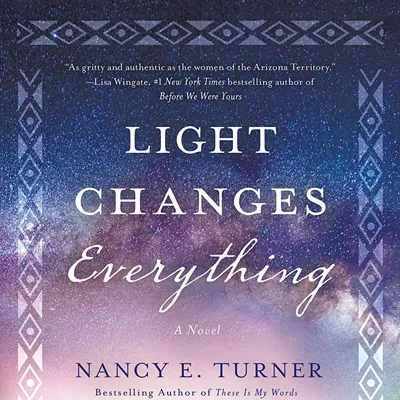Linda and Michael have been contentedly married for 20 years, but what Linda finds in Michael's journals calls that contentment into question--assuming she can trust what she reads, for both of them are novelists, and some degree of fiction necessarily seeps into many aspects of their lives.
Fiction, indeed, is the title of the Steven Dietz play now onstage at Beowulf Alley Theatre Company. Dietz's work usually winds up at Arizona Theatre Company, where it has always made a mixed impression. His adaptations (Dracula, Sherlock Holmes, Over the Moon) draw out the more ludicrous and melodramatic elements of the source material, and they almost seem like spoofs, but spoofs without the courage to mock. His original plays (Rocket Man, Private Eyes) are more successful, but Dietz sometimes favors cleverness over content. Make no mistake, Dietz is very clever in terms of theatrical sleight of hand, but too often, he leaves his potentially rich characters straining to break out of his complicated outlines.
Fiction is one of his most successful efforts yet produced in Tucson, but even in this 2002 work, he sometimes lets his characters down. Michael and Linda are baby boomer intellectuals who revel in their own intelligence, wit, character flaws and cultural prejudices. ("No bond is greater," says one, "than that of ecstatically shared hatreds.") In short, they are great fun to watch, but Dietz--abetted by the otherwise spot-on director Jennifer Bazzell and actors Leanne Whitewolf Charlton and Richard Ragsdale--can't summon the fortitude to make them thoroughly loathsome.
This is especially a problem with Michael. Pay attention just to his words, rather than his delivery or his body language, and you'll hear how vicious he can be, not only in some of his "light-hearted" remarks to Linda, but in his interaction with Abby (played with strong will and no nonsense by Alida Gunn), an icy young woman he meets at a writer's colony. The words, on their own, suggest that Michael might best be portrayed as a very mean George Plimpton. But what we actually get is the real George Plimpton without the upper-crust drawl, an amiable guy, kind of a TV sitcom dad, who just happens to have a Tourette-like compulsion for uttering the cutting bon mot.
Linda gets watered down in quite a different way; she is denied much texture and depth beyond her rough intellectual-snob exterior. In every scene, no matter what's happening to her--whether she's a young woman meeting Michael for the first time at a Parisian café, a jaded semi-failed novelist teaching a writing seminar, or a person who has just undergone brain surgery and is being subjected to radiation and chemotherapy--she is exactly the same, allowing for the varying emotional dynamics of the moment. Now, Dietz loves to toy with the timeline, and having the "present," sick Linda wrap her head in a scarf wouldn't keep the audience sufficiently off-balance. But Linda is too balanced; her only challenge relates to the journals, and her physical affliction seems like an afterthought.
And yet Fiction remains engrossing and fun; Dietz, Bazzell and the cast manage to distract us from these fundamental flaws with characters who nevertheless pull us through a plot with a few satisfying twists. Still, nothing about this play is trustworthy (and that's part of its appeal). Just as Michael tries to pass off a quote from Dante as his own, Dietz tosses in a few choice lines that aren't necessarily original, but without attribution. One of the best witticisms, for example, is Michael's observation that film is called a medium "because it's neither rare nor well done"; that's something Ernie Kovacs actually said about television more than 40 years ago. Maybe it's just another example of Michael's tendency to plagiarize, a boomer quoting a long-gone TV comedian that someone Abby's age has probably never heard of. (Although she does know her Dante.)
Within the limitations I've mentioned, the actors do their best to transform the characters into real people. Whitewolf Charlton's anger and hurt at the top of Act 2 is especially effective, because she knows how to project it rather than broadcast it. However flawed Fiction may be, denying its entertainment value would be a lie.








